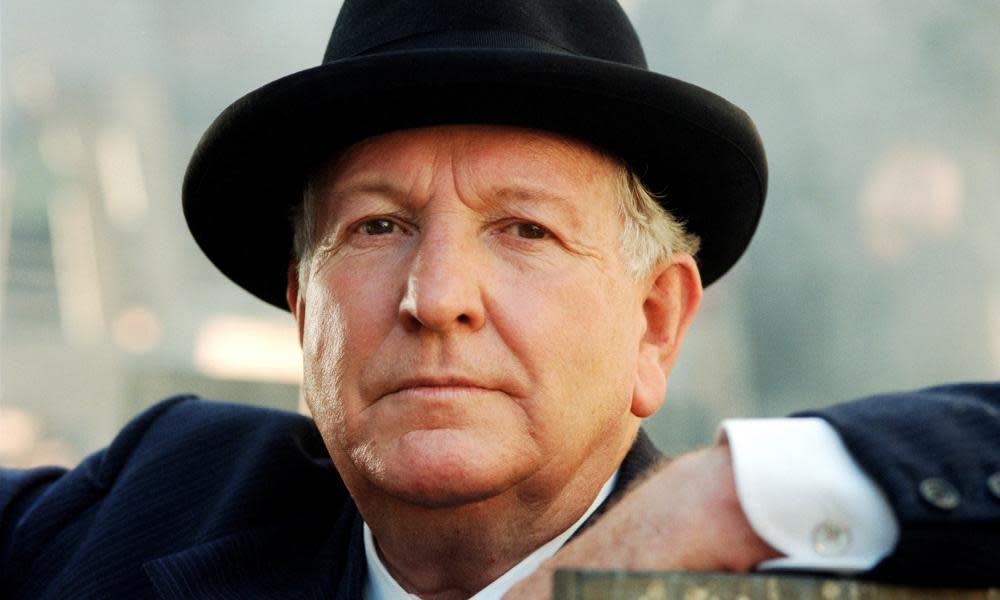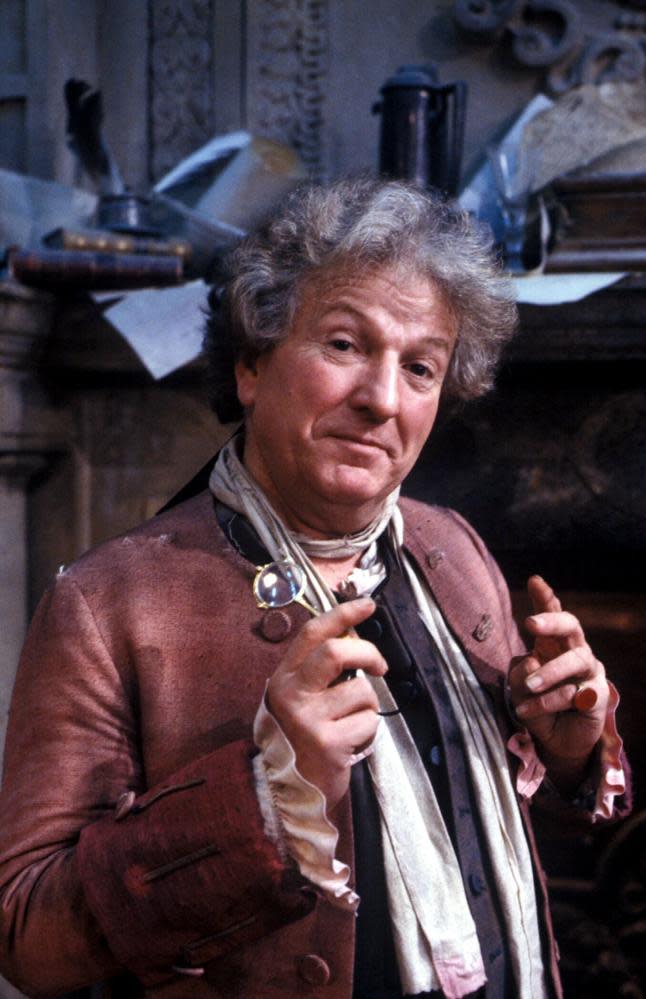Keith Barron: from coppers to adulterers, a star of hit TV to the end

Whereas many frontline actors conduct parallel careers in television, stage and film, Keith Barron, who has died aged 83, was essentially a peak-time TV specialist.
His small-screen career stretched a remarkable 55 years, from the 1961 BBC comedy A Chance of Thunder to the ITV police series DCI Banks, in which, as recently as last year, he played the main character’s elderly dad. This Christmas, he will be seen posthumously in the seasonal special of the BBC1 sitcom Not Going Out, his final performance.
Barron’s CV ranged from serious and bold pieces – he was first noticed in the work of Dennis Potter, then the medium’s most radical dramatist, in the mid-60s – to the most frivolously populist, including ITV’s Spanish holiday sitcom Duty Free, which ran from 1984 to 1986.
The actor’s loyalty to TV – and the medium’s to him – was helped by the fact that the peak of his career coincided with a period in which a hit show could expect to be watched by up to half of the UK population at the same time on the same night. Barron was seen weekly by 18 million people in Duty Free, a sitcom audience unimaginable in the fragmented digital world.
It is a testimony to Barron’s rapport with mass TV audiences that most of his biggest successes came on ITV, where shows live and die almost entirely by their ratings, with little possibility of claiming, as at the BBC, public service or succès d’estime. What brought viewers back every week, and to each new series, was the performer’s charm, vocal clarity and sharp comic timing.

His prime assets as an actor were a deep Yorkshire-accented voice and a natural look of broad-faced, wide-blue-eyed innocence. Both face and delivery were able to move from rectitude through reticence to shiftiness, with interesting cross-shadings along the way. This spectrum led to Barron most recurrently being cast as police officers or philanderers.
His long blue line of coppers started with DS John Swift in The Odd Man (ITV, 1964) and a spin-off, building on the impact of his character, It’s Dark Outside (1964-65). Barron later wielded a warrant card again in The Ruth Rendell Mysteries (ITV, 1996) and NCS: Manhunt (BBC1, 2001-02).
As the adultery interest, Barron impressed as a rogue in Brian Clarke’s 10-parter Telford’s Change (BBC1, 1979), tempting Hannah Gordon as the wife of Peter Barkworth’s workaholic businessman. In Tony Marchant’s Take Me Home (BBC1, 1989), he again found himself on the dark side of the sheets, as a long-married taxi-driver who begins an affair with a passenger (in a drama that, curiously, was filmed in the Shropshire new town after which Barkworth’s character had been named in the earlier infidelity series).
Bed-hopping played for comedy drove Barron’s role in Haggard (ITV, 1990-92). In a relatively rare lead and title role, the actor played a libidinous squire in 18th-century England. But the standout part among his many guilty lovers was David, constantly trying to pursue an affair with fellow hotel guest Linda, in Duty Free. Even by the standards of sitcom, this show required considerable suspension of disbelief – the first two series supposedly took place over the same fortnight package holiday in Marbella – but Barron understood that, to the characters in a sex farce, their desires and desperations are as serious as those in a Greek tragedy.
He had honed these comic skills in the 1950s, while – as was standard for actors in a period when British TV had barely begun and there was no UK film industry – serving an apprenticeship in theatre, starting in his native Sheffield, where he met and married Mary Pickard, a stage designer. They remained together until his death.
A wide face and striking eyes register well on television, and so the young Barron came to the attention of casting directors in the then modish medium, soon landing his breakthrough role in two linked plays by Dennis Potter: Stand Up, Nigel Barton and Vote, Vote, Vote for Nigel Barton. These stories of a miner’s son who was alienated from his family by going to university and then stood as a Labour candidate were based on Potter’s own experience, but Barron, as a Yorkshire lad who had taken an unexpected route into showbiz, could identify viscerally with many of the lines.
At the time, there were only three TV channels in Britain (with the second BBC network only a year old) and so, broadcast on consecutive Wednesdays in December 1965, the plays made a huge impact, helped by transmission being delayed by a fuss over political content. The role made Barron an always-recognisable and always-reliable TV actor, which he remained until the end, always in demand as dads and grandads when the supply of lovers and police chiefs dried up.
Most people will remember him for Duty Free, but this well-liked and versatile actor, with a golden touch in populist TV, should perhaps be most cherished for the Barton plays, Take Me Home and Haggard.

 Yahoo News
Yahoo News 
